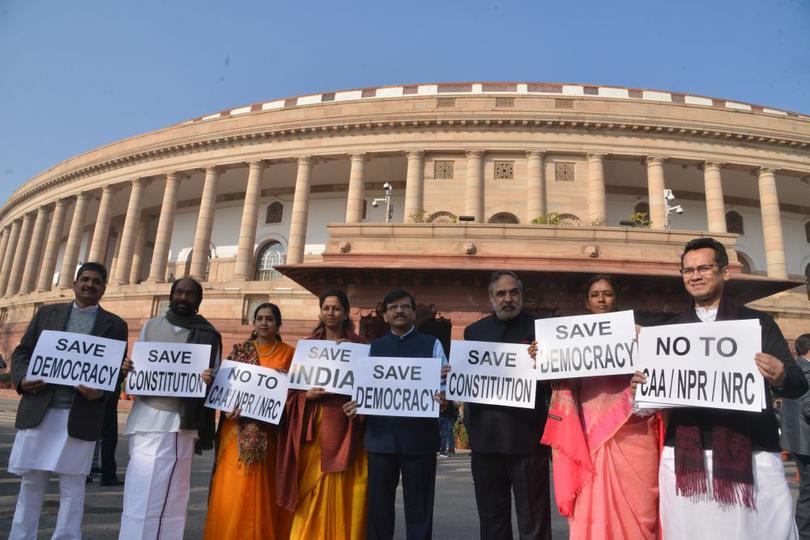A directive empowered the Collectors of Mehsana and Anand districts in Gujarat to grant citizenship under the Citizenship Amendment Act (CAA). All India Majlis-e-Ittehadul Muslimeen (MIM) chief Asaduddin Weisi opposed the Union Home Ministry’s directive on the matter. “This law should be secular,” he said on Tuesday. He added, “That’s it! First, they (minorities in Afghanistan) are being given long-term visas. Then they are getting citizenship.”
Plan of BJP government
The BJP government plans to implement a uniform civil code in poll-bound Gujarat. Chief Minister Bhupendra Patel recently announced the formation of a committee in this regard. This is an attempt by the BJP to cover up its failure and wrong decisions before the polls, Weisi said. He said, “Why is an income tax exemption for Hindu joint families only given to Hindus? Give it to Muslims as well, it is against the Constitution’s recognition of equal rights as fundamental rights.”

In a directive, the Collectors of Mehsana and Anand districts in Gujarat have been empowered to grant citizenship to migrants following the Home Ministry’s new rules on the Citizenship Amendment Act (CAA). But this is nothing new. The issue of citizenship is in the hands of the central government. From time to time the Ministry of Home Affairs has empowered the State Officers in this regard. Similar guidelines were issued in 2016, 2018, and 2021 by the districts of Gujarat, Chhattisgarh, Rajasthan, Haryana, and Punjab.
The CAA was passed by Parliament on December 11, 2019, amid intense criticism. The President’s approval came the very next day. According to the Act, citizenship will be granted to Hindus, Jains, Sikhs, Parsis, Christians, and Buddhists who came to India from Pakistan, Bangladesh, and Afghanistan after being persecuted by December 31, 2014. A lot of questions have been raised about the apparent exclusion of Muslims. Even before that, Home Minister Amit Shah has repeatedly said National Register of Citizens (NRC) will be created across the country to identify illegal immigrants.
Conclusion
Alleging the whole issue was a conspiracy to separate Muslims, there were protests across the country. Many states have said they will not enforce the law. However, the law has not yet been implemented. Because there is no clear policy regarding this yet. According to the Parliamentary Practice Rules, if a department or ministry fails to enact legislation within the prescribed six months after the President’s assent, then they will have to apply to the parliamentary committee in this regard and take additional time. which shall not exceed three months at a time.
The Union Home Ministry notified that the CAA will come into effect from January 10, 2020. Later, the Parliamentary Committees of the Rajya Sabha and Lok Sabha were requested to seek more time citing the crisis in preparation for Covid. The first extension of time was granted in June 2020. Then it repeats again and again. Weisi declined to say more as the matter is pending. He said, “Citizenship Amendment Act should be linked with the National Population Register (NPR) and National Register of Citizens (NRC).”
